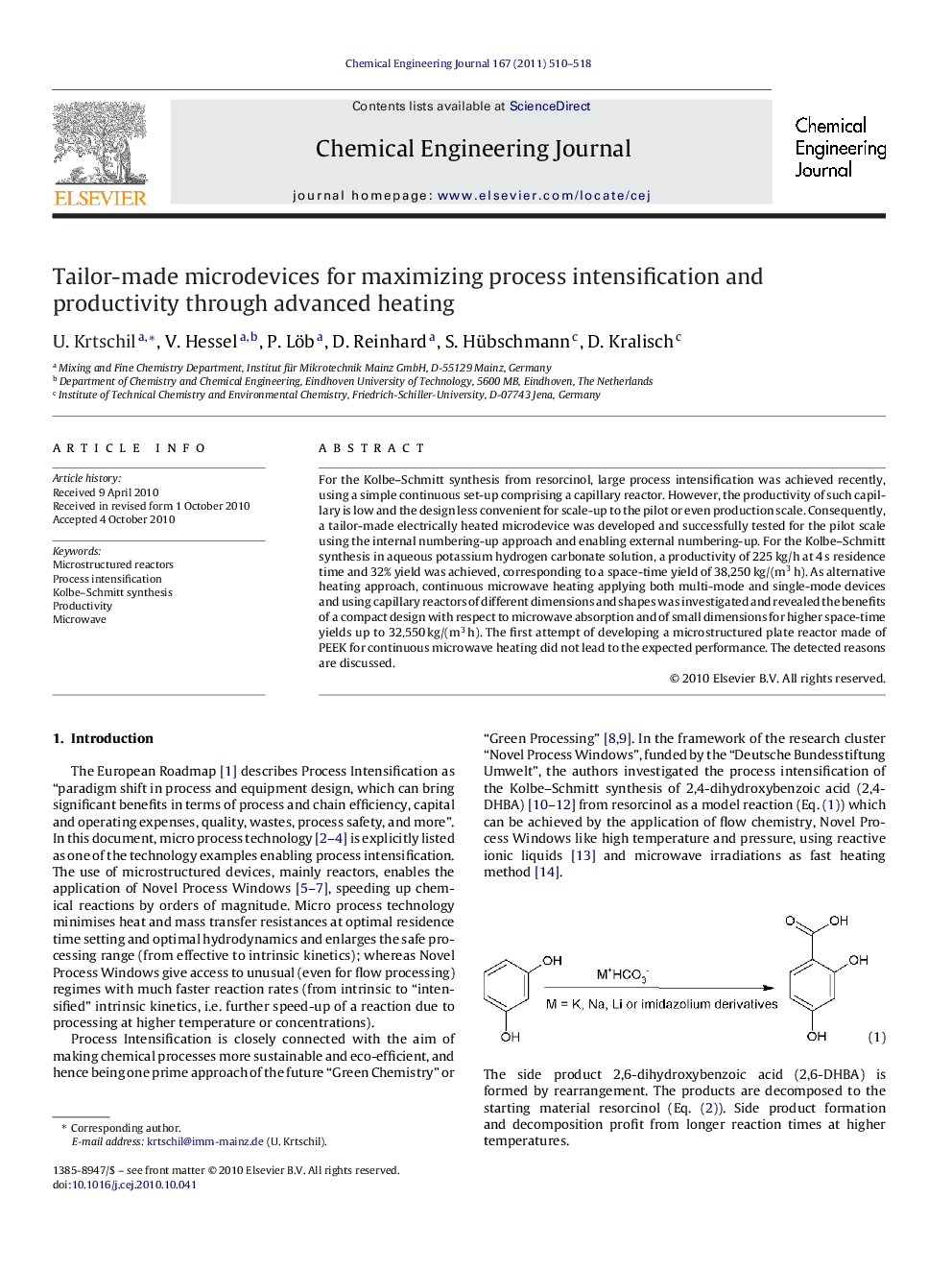| Article ID | Journal | Published Year | Pages | File Type |
|---|---|---|---|---|
| 6588117 | Chemical Engineering Journal | 2011 | 9 Pages |
Abstract
For the Kolbe-Schmitt synthesis from resorcinol, large process intensification was achieved recently, using a simple continuous set-up comprising a capillary reactor. However, the productivity of such capillary is low and the design less convenient for scale-up to the pilot or even production scale. Consequently, a tailor-made electrically heated microdevice was developed and successfully tested for the pilot scale using the internal numbering-up approach and enabling external numbering-up. For the Kolbe-Schmitt synthesis in aqueous potassium hydrogen carbonate solution, a productivity of 225Â kg/h at 4Â s residence time and 32% yield was achieved, corresponding to a space-time yield of 38,250Â kg/(m3Â h). As alternative heating approach, continuous microwave heating applying both multi-mode and single-mode devices and using capillary reactors of different dimensions and shapes was investigated and revealed the benefits of a compact design with respect to microwave absorption and of small dimensions for higher space-time yields up to 32,550Â kg/(m3Â h). The first attempt of developing a microstructured plate reactor made of PEEK for continuous microwave heating did not lead to the expected performance. The detected reasons are discussed.
Related Topics
Physical Sciences and Engineering
Chemical Engineering
Chemical Engineering (General)
Authors
U. Krtschil, V. Hessel, P. Löb, D. Reinhard, S. Hübschmann, D. Kralisch,
